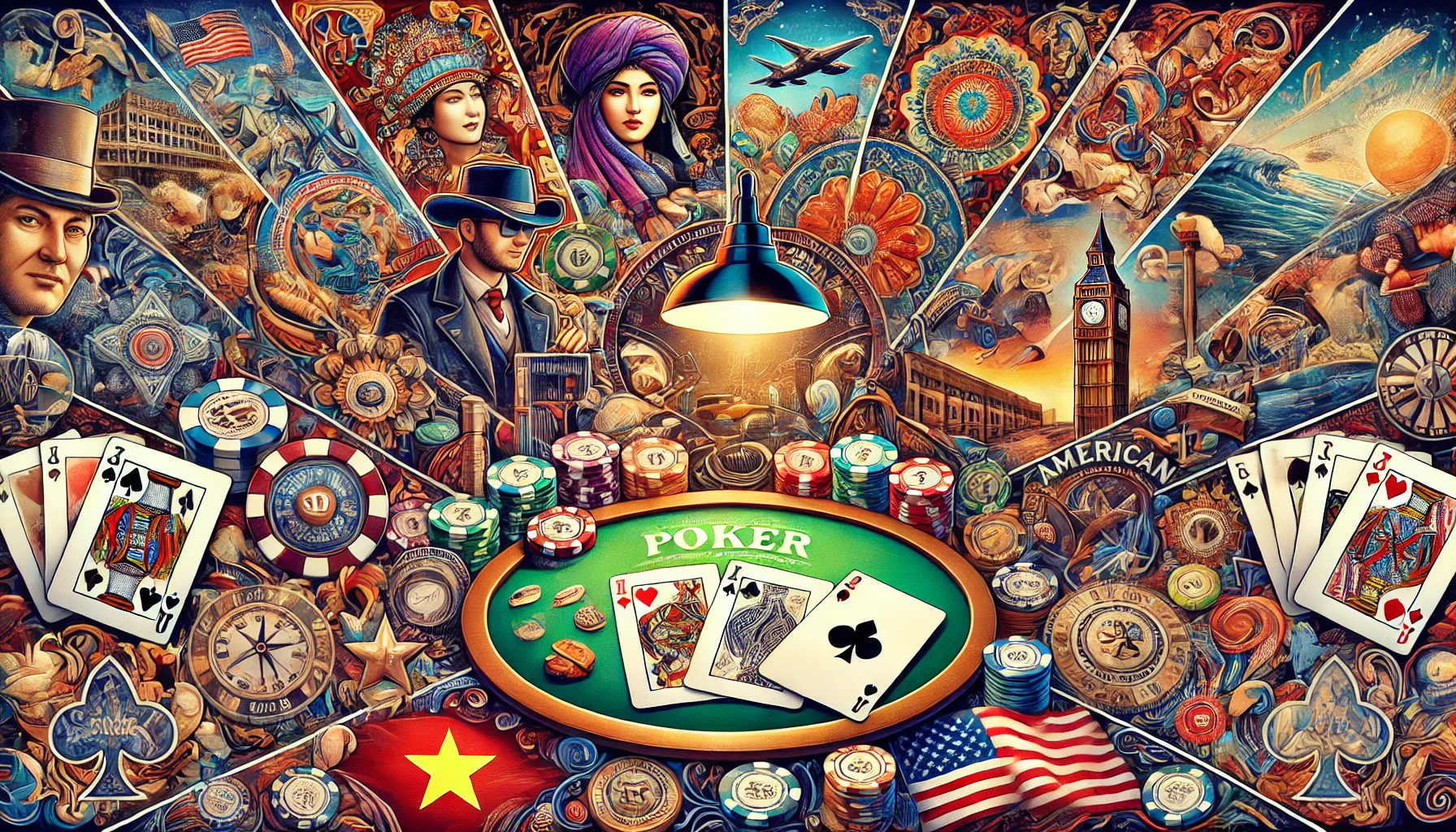
The Influence of Different Cultures on the Development of Poker
Poker is a globally renowned card game that has evolved over centuries, shaped by the unique traditions and values of the cultures that embraced it. Each country’s influence has contributed to the richness and diversity of the game as we know it today. This article explores how various cultural elements have played a role in the development of poker, from its origins to its modern popularity.
The Early Origins of Poker and Cultural Contributions
The roots of poker can be traced back to several ancient card games that were influenced by cultural practices across the globe. One of the earliest examples comes from 10th-century China, where card games were initially invented as a form of entertainment. The rules were simple, yet they introduced the concept of combining strategy with luck. Over time, these games spread across Asia, evolving into more structured formats.
In the Middle East, the Persian game As-Nas gained prominence during the 16th century. It incorporated elements of betting and hand rankings, making it a precursor to modern poker. This game highlighted the region’s emphasis on calculated risks and strategic planning, qualities that are still central to poker today.
Europe, too, left an indelible mark on poker. Spanish Primero and French Poque introduced the ideas of bluffing and strategic betting. These games were deeply rooted in the social and cultural practices of their time, often played by aristocrats as a demonstration of wit and sophistication. By the time French colonists brought Poque to America, the game was ready to undergo a significant transformation in the hands of the New World.
European Influence on Poker’s Evolution
The influence of European card games cannot be overstated. Primero and Poque not only introduced structural elements but also cultural nuances that shaped the dynamics of poker. For example, the tradition of bluffing in poker can be traced back to these early European games, where deception was considered an art form. The French also contributed to the game’s terminology, with words like “flush” and “bluff” having their origins in the French language.
The Role of American Culture in Shaping Modern Poker
The United States played a transformative role in the evolution of poker, particularly during the 19th century. The game spread rapidly across saloons, riverboats, and mining camps, where it became a symbol of the frontier lifestyle. Americans adapted poker to suit their adventurous spirit, adding innovations like the 52-card deck and the inclusion of hands such as straights and flushes.
One of the most significant contributions of American culture is the invention of Texas Hold’em. First played in the early 20th century, this variation revolutionized poker by introducing community cards and emphasizing strategic depth. It encapsulated the American ethos of individuality and creativity, allowing players to develop distinct styles of play.
In the 1970s, the establishment of the World Series of Poker (WSOP) marked a turning point for poker’s global recognition. Held annually in Las Vegas, the WSOP showcased poker as a competitive and professional sport. Its success highlighted the growing influence of American culture in promoting poker as a mainstream activity.
The Rise of Poker in the Digital Age
The internet revolutionized poker, making it accessible to millions of players worldwide. Online platforms like PokerStars and Full Tilt Poker enabled players to compete across borders, further solidifying poker’s status as a global game. American innovations in software and marketing helped popularize online poker, attracting players from diverse cultural backgrounds.

Asian Influence on Poker’s Strategic Depth
Asia’s influence on poker is relatively recent but equally impactful. In countries like Japan and China, traditional games such as Mahjong and Go have contributed to the strategic aspects of poker. These games emphasize patience, discipline, and long-term planning, qualities that Asian players often bring to the poker table.
The rise of poker tournaments in Asia, such as the Asia Poker Tour (APT), demonstrates the region’s growing enthusiasm for the game. Countries like the Philippines and South Korea have embraced poker not only as a recreational activity but also as a professional pursuit. Asian players have gained international recognition for their disciplined and calculated approaches, often inspired by cultural philosophies like Zen and Confucianism.
Psychological Approaches Inspired by Asian Philosophy
Asian philosophies have introduced a unique psychological dimension to poker. Players often draw upon principles of balance, focus, and mindfulness, derived from Zen teachings. This approach emphasizes controlling emotions and staying composed under pressure, traits that are invaluable in high-stakes poker games. By incorporating these philosophies, Asian players have enriched the global poker community with new strategies and perspectives.
In conclusion, poker’s evolution is a testament to its adaptability and the rich tapestry of cultural influences that have shaped it. From its ancient roots in Asia and the Middle East to its modern popularity in America and Europe, poker reflects the values and traditions of the cultures that have embraced it. The game continues to evolve, bringing together players from around the world in a celebration of skill, strategy, and cultural diversity.




